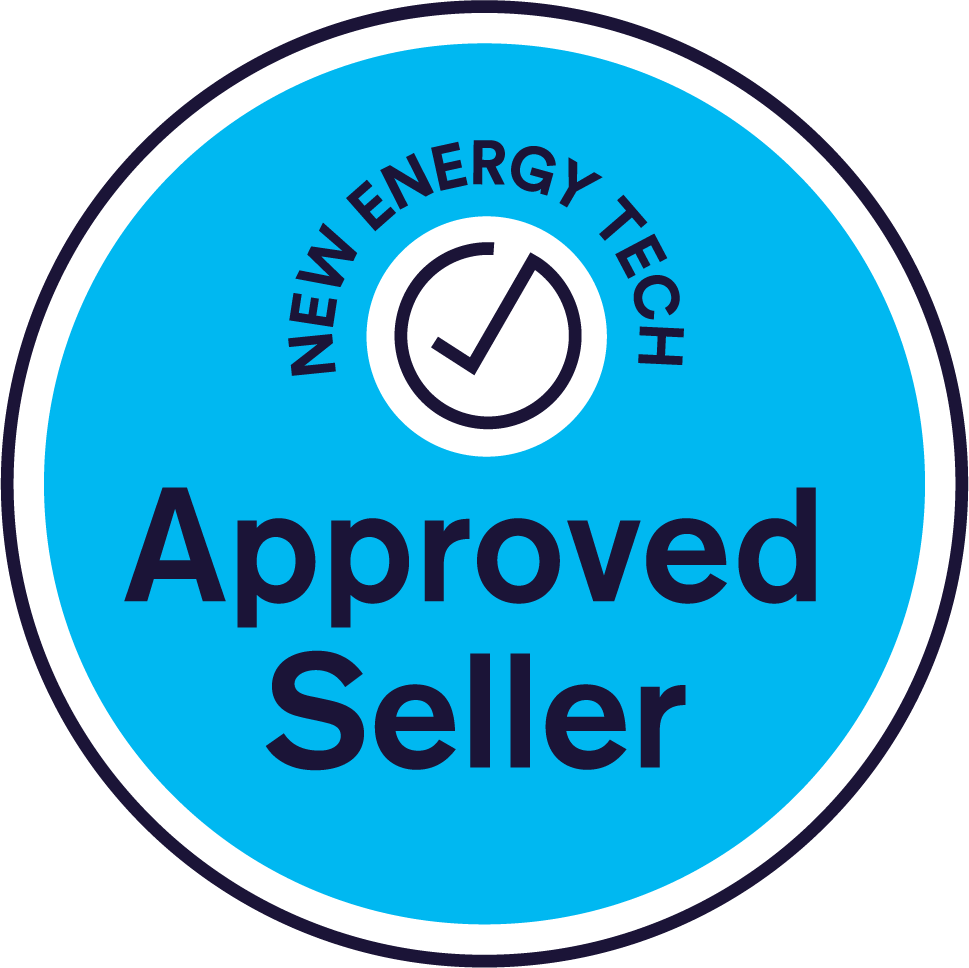Heat pumps and solar hot water systems are two energy-efficient options for heating water at home. Both options have their pros and cons, and the choice depends on your specific needs and circumstances.
Heat pumps use electricity to transfer heat from the air or ground and can provide both heating and cooling functions. On the other hand, solar hot water systems use sunlight to heat water directly. While heat pumps may be more costly upfront, they can provide long-term savings on energy bills.
Solar hot water systems, on the other hand, rely on the availability of sunlight and may require additional support for heating during cloudy periods. Ultimately, the decision between a heat pump and solar hot water system will depend on factors such as the climate, available space, budget, and desired energy savings.
Differences Between Heat Pumps VS Solar Hot Water Systems
Choosing between heat pumps and solar hot water systems for your home requires careful consideration of several key factors. To help you make an informed decision, here are the top considerations to keep in mind:
Initial Cost
The initial cost is an important factor to consider when comparing heat pumps and solar hot water systems.
Heat pumps tend to have a higher upfront cost compared to solar hot water systems. However, it's important to weigh this against the long-term savings on energy bills that both options can provide.
Solar Water Heaters: Solar setups can be costly, and extra piping may be needed for thermal panels, leading to higher installation expenses.
Heat Pump Water Heaters: The initial installation costs for heat pumps are lower, up to 50% less than those for solar water heaters.
Climate And Sunlight Availability
Assessing your climate and the availability of sunlight in your area is crucial when choosing between heat pumps and solar hot water systems. Solar hot water systems rely heavily on sunlight to generate hot water efficiently.
If you live in an area with limited sunlight or frequent overcast conditions, a heat pump may be a more suitable option as it is not dependent on sunlight but rather extracts heat from the ambient air.
Maintenance Requirements
Considering the maintenance requirements of heat pumps and solar hot water systems is important to ensure their longevity and optimal performance.
Heat pumps generally require less maintenance compared to solar hot water systems, which can be more complex and have additional components like solar panels.
Regular servicing and inspections should be carried out for both options to ensure they are functioning optimally and to identify any potential issues.
| Heat Pumps | Solar Hot Water Systems | |
|---|---|---|
| Ease of maintenance | Low | Medium |
| Frequency of servicing | Annual | Annual or as required |
| Additional components | N/A | Solar panels |
Consider these considerations of initial cost, climate and sunlight availability, and maintenance requirements to make an informed decision when choosing between heat pumps and solar hot water systems.
While both are renewable options, solar water heaters and heat pumps have some key differences.
Energy Source
Solar Water Heaters: They use the sun’s energy to heat water. They need direct and indirect solar radiation to heat water.
Heat Pump Water Heaters: They use electricity to run. They extract heat from the surrounding air and use electricity to transfer it to the water.
Efficiency
Solar Water Heaters: They are highly efficient, converting sunlight into heat at rates of 70% to 80% making them a sustainable and cost-effective option for many households. Its effectiveness is dependent on direct sunlight, performing best on sunny days. Their efficiency diminishes on cloudy days. Unlike heat pumps, solar hot water heaters may need a backup system (electric or gas) for hot water during low sunlight or nighttime.
Heat Pump Water Heaters: Doesn't need direct sunlight, as it uses the heat from the atmosphere to make the water hot. Heat pump water heaters can achieve an average efficiency of around 300%, which is significantly higher than that of traditional electric water heaters, which typically have an efficiency of around 90-95%.
If you're already using a regular electric water heater, switching to a heat pump water heater is easy– same connections, less energy. It works all year, day and night, and even on cooler days, saving up to 68% on energy. In very cold weather, heat pumps have a backup system for hot water and a function to prevent ice from forming.
Space Requirements:
Solar Water Heaters: Solar hot water heaters are typically installed on rooftops or open areas with direct exposure to the sun. Solar hot water systems need a lot of space for the solar panels which can make it comparatively harder to install them. If you have a big house or a business, you'll need even more space. The place where you put the panels has to get a lot of sunlight too.
Heat Pump Water Heaters: Heat pumps are easier to install compared to solar water heaters. They are smaller and can be put in smaller spaces, so they're good for places where there isn't a lot of room outside or on the roof. You can put them in different places inside, and they don't need any special requirements for the roof or ground. However, heat pumps require a little space for a tank inside the home.
Eco-Friendly Options for Energy Savings and Government Incentives
Solar Water Heaters: Switching to solar hot water is a simple way to reduce your impact on the environment and save up to 65% of the energy used for heating water. By using solar energy, you could prevent about 1.0 to 2.5 tonnes of greenhouse gas emissions each year. You can get financial help with the installation cost through Small-scale Technology Certificates (STCs) from the government to encourage people to use solar water heaters.
Heat Pump Water Heaters: Using a heat pump water heater is another way to save energy. It uses electricity to move heat and reduces the need for regular electric water heaters. While it may not save as much on emissions as solar, it's still a good choice for a more environmentally friendly and cost-effective home. Heat pumps also qualify for STCs, which can help lower the initial cost of switching to renewable energy.
Flexibility and Integration:
Solar Water Heaters: Typically require dedicated storage tanks, designed for larger households with higher hot water demands. May involve additional plumbing work for proper integration into the existing water heating system. Ideal for homeowners with ample roof space and sunlight exposure, especially in regions with consistent sunlight.
Heat Pump Water Heaters: Easily integrated into existing systems, providing a versatile and adaptable solution. Compact in size, allowing for flexibility in installation locations. Well-suited for various settings and can be accommodated in smaller spaces.
Solar Limitations:
Solar Water Heaters: They are not entirely solar-powered, as they may need a booster during periods of low sunlight, at night, or in overcast conditions.
The need for a booster can impact the overall cost savings compared to traditional gas or electric heaters.
Heat Pump Water Heaters: They work all the time, day or night, without needing sunlight, so they don't require a booster. This independence can help save money, making heat pump water heaters a dependable and efficient option compared to regular gas or electric heaters.
Weather risks:
Solar Water Heaters: Solar panels can be damaged in rough weather conditions because they are exposed to the elements.
Heat Pump Water Heaters: On the other hand, heat pumps, being located indoors, don't have the same risk of weather-related damage.
Maintenance and Longevity
Solar Water Heaters: Usually need little maintenance, just occasional checks for cleanliness and leaks. With proper care, they can last over 20 years.
Heat Pump Water Heaters: Heat pump water heaters may require periodic maintenance of the compressor and refrigerant system, as well as filter replacements to maintain efficiency. They last longer than traditional electric heaters about 10 to 15 years but may have a shorter lifespan compared to solar systems.
Considerations for Solar water heater and Heat Pumps:
Solar Water Heaters: They are a good choice for people with lots of roof space who want to use renewable energy. Also, solar panels can be combined with heat pumps to make a hybrid system that's even more efficient and reliable.
Heat Pump Water Heaters: They are popular because they're efficient, protected from the weather, and have lower installation costs. While noise can be a concern, it's usually minimal in modern heat pump models.
Frequently Asked Questions On Heat Pump Vs Solar Hot Water
Is Heat Pump Better Than Solar Hot Water?
Yes, heat pumps are generally considered more efficient and cost-effective than solar hot water systems. They can provide both heating and cooling, and work in all weather conditions, whereas solar hot water systems depend on sunlight availability.
Which Is Better Solar Panels Or Heat Pumps?
Solar panels are a better choice than heat pumps for generating renewable energy. They are more efficient, have a longer lifespan, and require less maintenance. Additionally, solar panels can be used to power your entire home, while heat pumps are limited to heating and cooling.
What Are The Disadvantages Of A Heat Pump Hot Water System?
Disadvantages of a heat pump hot water system include higher upfront costs, dependence on external factors like air temperature, and potential noise and vibration issues. Additionally, some models may require more space for installation and could have higher maintenance requirements.
What Are The Disadvantages Of Solar Hot Water?
The disadvantages of solar hot water include high upfront costs, space requirements, and intermittency during cloudy days. Additionally, it may not be suitable for homes with limited sun exposure. However, advancements in technology are addressing these drawbacks, making solar hot water a sustainable and cost-effective solution.
Conclusion
In sum, both heat pumps and solar hot water systems offer advantages for different needs. Consider your climate, budget, and energy goals to determine which option is best for you. Whether you choose the efficiency of a heat pump or the eco-friendly benefits of solar, each system brings unique value to your home.



